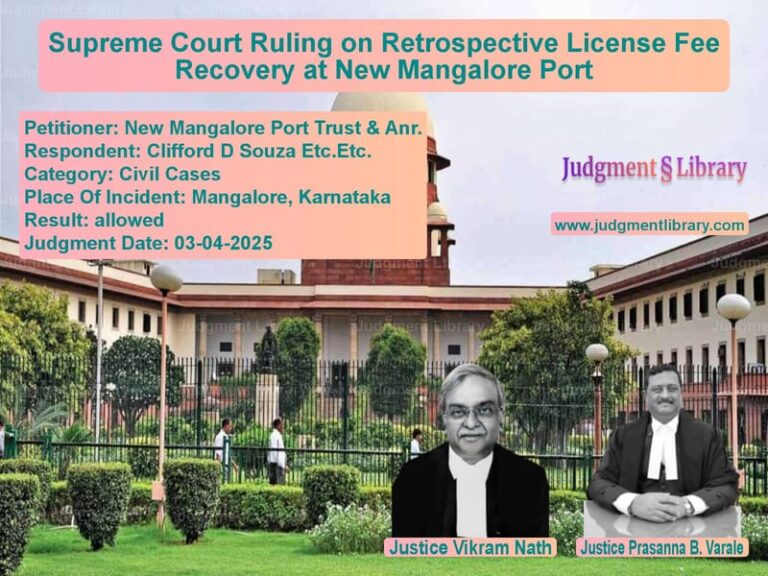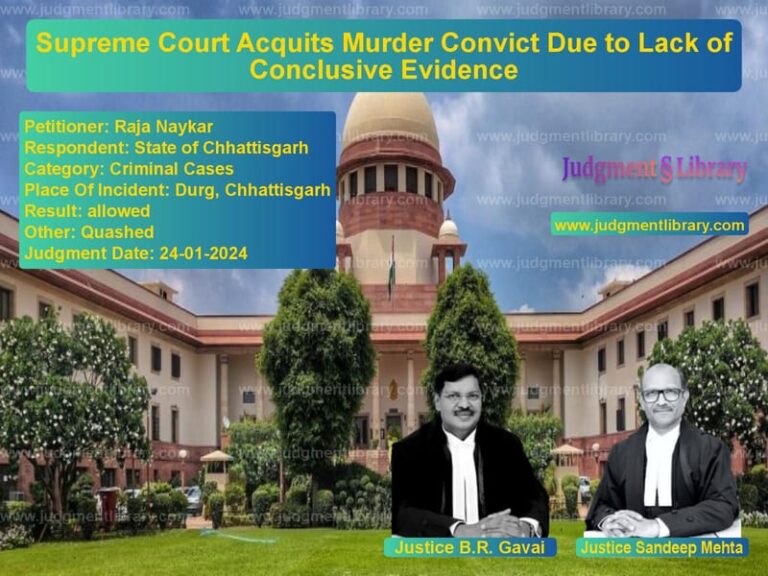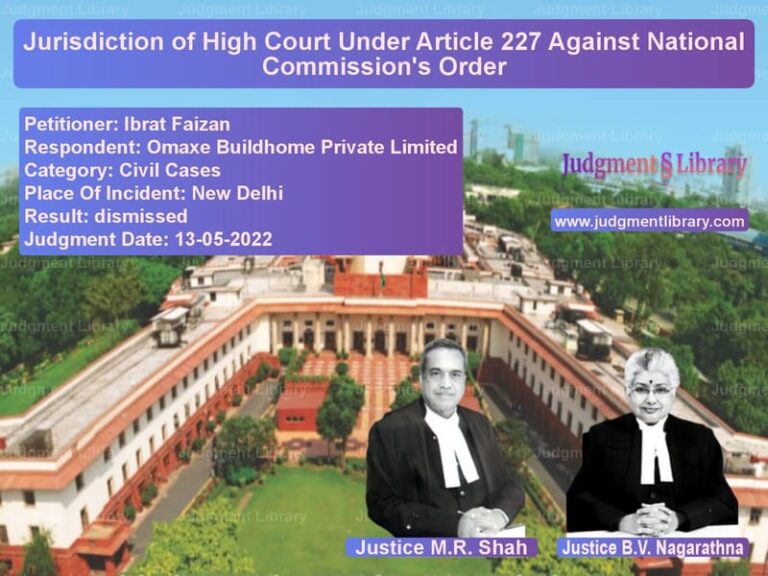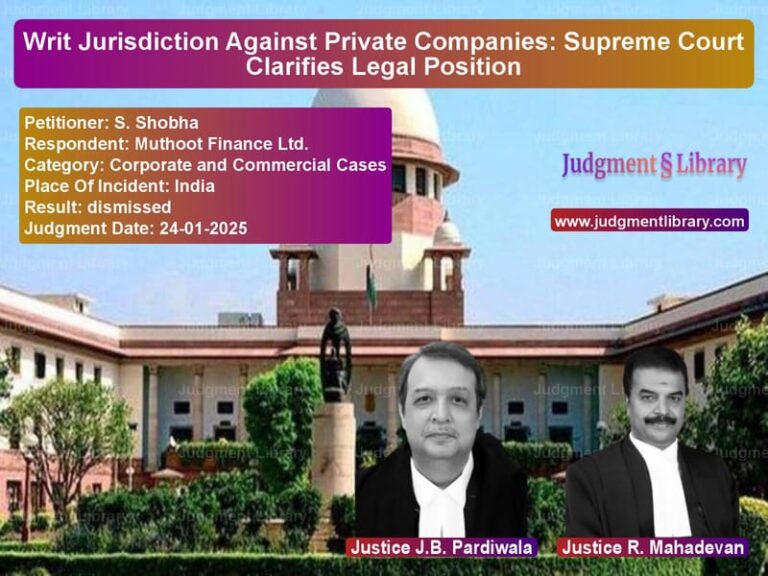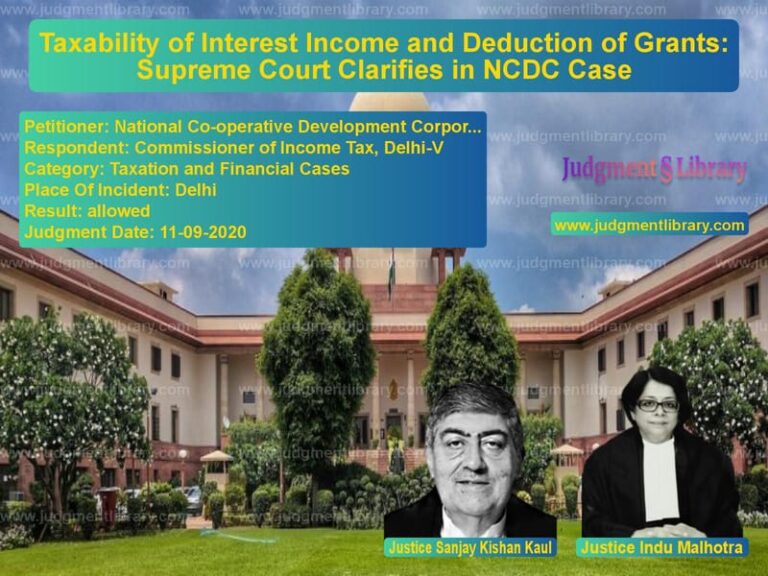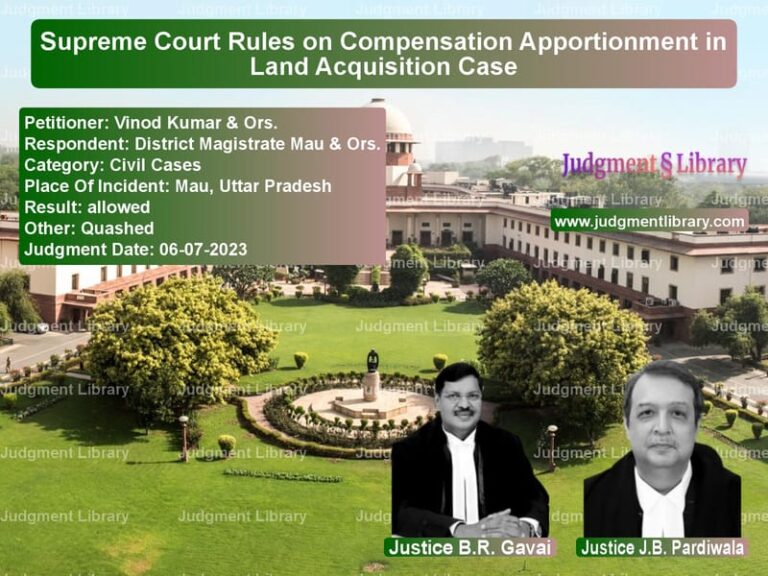Cheque Bounce Case: Supreme Court Denies Pre-Trial Quashing of Criminal Proceedings
The case of Rathish Babu Unnikrishnan vs. The State (Govt. of NCT of Delhi) & Anr. dealt with a cheque bounce dispute under Section 138 of the Negotiable Instruments Act, 1881. The Supreme Court was asked to determine whether the criminal complaint against the appellant should be quashed before trial. The ruling reaffirms that unless there is an unimpeachable defense, accused persons must face trial to rebut the statutory presumption of legal debt.
Background of the Case
The dispute arose when the respondent, Satish Gupta, filed a complaint against the appellant, Rathish Babu Unnikrishnan, alleging that post-dated cheques issued for share buyback in AAT Academy (the appellant’s company) were dishonored due to insufficient funds.
Key events leading to the case:
- June 1, 2018: The Magistrate issued a summoning order against the appellant under Section 138 of the NI Act.
- November 3, 2018: The Magistrate framed notice under Section 251 of the CrPC, formally commencing trial proceedings.
- 2019: The appellant moved the Delhi High Court under Section 482 CrPC to quash the proceedings.
- August 2, 2019: The High Court dismissed the appellant’s plea, ruling that defenses should be raised at trial.
- 2020: The appellant approached the Supreme Court, challenging the High Court’s decision.
Petitioners’ Arguments
The appellant, through his counsel Krishnamohan K., argued:
“The dishonored cheque was not issued for a legally enforceable debt but as a security instrument. The complainant was still holding shares in the company when the cheque was presented, violating the terms of the share transfer agreement.”
Key points raised:
- The cheques were issued as a security mechanism for share buyback, not as payment for an existing liability.
- The complainant attempted to encash the cheques before transferring the shares, contradicting standard trade practices.
- Since no debt was due at the time of presentation, the cheque bounce case was not legally sustainable.
- The case should be quashed to prevent harassment and abuse of legal processes.
Respondents’ Arguments
The complainant, represented by ASG K.M. Nataraj and Senior Advocate Rebecca M. John, opposed the quashing plea, contending:
“Under Section 139 of the NI Act, when a cheque is dishonored, a legal presumption arises in favor of the holder. The burden is on the accused to prove the absence of enforceable debt in trial, not during preliminary proceedings.”
Key counterarguments:
- The accused admitted issuing the cheques, making the statutory presumption of debt applicable.
- The company received an investment from the complainant, and repayment obligations were agreed upon.
- Payment typically occurs first in share transactions, with formalities following.
- The accused must rebut the presumption of liability during trial, not in a pre-trial quashing petition.
Supreme Court’s Observations
The Supreme Court bench, comprising Justices K.M. Joseph and Hrishikesh Roy, ruled against pre-trial quashing, stating:
“The legal presumption under Section 139 of the NI Act favors the complainant. It would be improper to quash proceedings without allowing the accused to rebut the presumption during trial.”
Key findings:
- The accused must prove that the cheque was issued as security and not for repayment, a determination best suited for trial.
- The legal presumption of a valid debt stands unless successfully rebutted by evidence.
- Pre-trial quashing should be exercised sparingly and only when the accused presents unimpeachable evidence ruling out liability.
- The High Court correctly dismissed the quashing plea, safeguarding the complainant’s right to prove his case.
Final Ruling
The Supreme Court dismissed the appeal and ruled:
- The criminal proceedings shall continue before the trial court.
- The accused retains the right to contest liability by presenting evidence at trial.
- The High Court’s ruling was correct in holding that pre-trial interference was unwarranted.
Conclusion
This judgment reinforces the principle that pre-trial quashing of cheque bounce cases should be exercised with caution. It highlights the importance of legal presumptions under the NI Act and ensures that accused persons can only escape liability by rebutting claims through evidence in trial.
Petitioner Name: Rathish Babu Unnikrishnan.Respondent Name: The State (Govt. of NCT of Delhi) & Anr..Judgment By: Justice K.M. Joseph, Justice Hrishikesh Roy.Place Of Incident: Delhi.Judgment Date: 26-04-2022.
Don’t miss out on the full details! Download the complete judgment in PDF format below and gain valuable insights instantly!
Download Judgment: rathish-babu-unnikri-vs-the-state-(govt.-of-supreme-court-of-india-judgment-dated-26-04-2022.pdf
Directly Download Judgment: Directly download this Judgment
See all petitions in Fraud and Forgery
See all petitions in Cheque Dishonour Cases
See all petitions in Judgment by K.M. Joseph
See all petitions in Judgment by Hrishikesh Roy
See all petitions in dismissed
See all petitions in supreme court of India judgments April 2022
See all petitions in 2022 judgments
See all posts in Criminal Cases Category
See all allowed petitions in Criminal Cases Category
See all Dismissed petitions in Criminal Cases Category
See all partially allowed petitions in Criminal Cases Category


